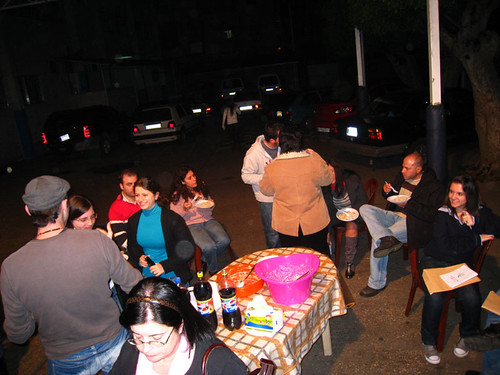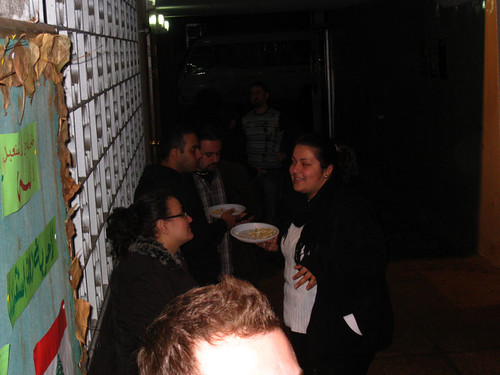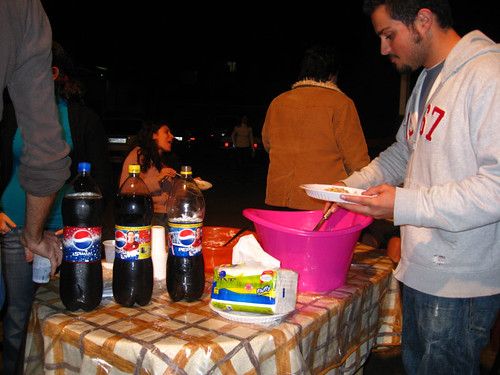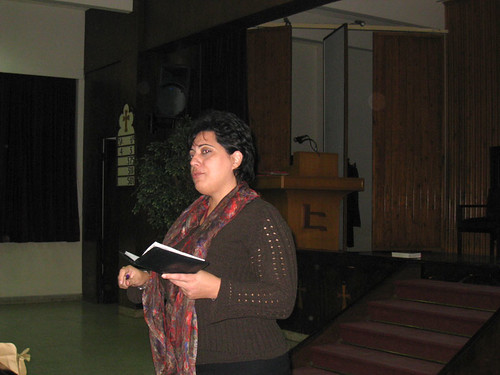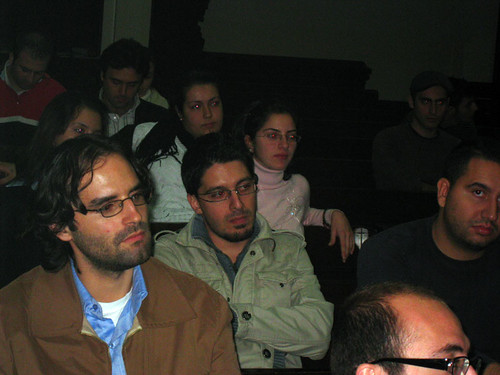Final Communiqué
6th General Assembly
Fellowship of the Middle East Evangelical Churches
(Anglican-Lutheran-Reformed)
Under the theme “…and we are his house if we hold firm the confidence, and pride the belongs to hope”, the 6th General Assembly of the Fellowship of the Middle East Evangelical Churches (FMEEC), consisting of Anglican & Lutheran & Reformed Churches, met at the conference center in Bethanya, Harissa – Lebanon, January 11-13, 2010.
Leaders & representatives of the Evangelical Churches (Anglican-Lutheran-Reformed) from Lebanon, Syria, Jordan, Palestine (& the Holy Land), Egypt, Sudan,Iran, Iraq, & Kuwait, & the President of the Supreme Council of the Evangelical Churches in Syria & Lebanon attended the meeting, as well as representatives of partner churches & church related organizations from the Middle East, Europe, & North America.
Following the opening daily devotions the Assembly listened to a theme centered Bible Study, presented by Rev. Dr. Makram Najeeb (Synod of the Nile) & Rev. Dr. Janette Wooton (Evangelical Church – UK).
In his opening word to the Assembly, Bishop Munib Younan (Head of the Lutheran Evangelical Church in Jordan & the Holy Land), referred to the painful events the Evangelical churches in the area are facing; at which all the attendees expressed their solidarity with the Christians in the Middle East, especially in Palestine, Iraq, Iran, & the Sudan. They expressed their sorrow for what happened lately in Naja’ Hamaadi, in Egypt, & spent a moment of silence honoring the victims thereof, praying for their families & the sister Church in Egypt, and sent to H. H. Shnouda III a message expressing their condolences & solidarity.

The General Secretary, Mrs. Rosangela Jarjour, presented her report, covering all aspects of FMEEC’s activities for the last 5 years, touching on many other very important issues, on top of which was the effective Christian & Evangelical Presence in the M. E., and the challenges hereto, now & in the future. The Assembly also listened to live testimonies from its Churches in the region, especially so from the Churches of the Sudan, Iran, & Iraq.
The Assembly also listened to, and reviewed the reports of the various Programs, such
Christian Education Program, Women’s Program, programs serving Iran & Iraq, FMEEC’s church - related schools Program, & Theology Program. The prominent issue was Ordination of Women in FMEEC Churches; and the Assembly, after elaborate & in-depth deliberations, approved the historical recommendation of supporting women ordination to Ministry in FMEEC’s Churches, and called upon its member Churches to carry out this decision for the advancement of the Oriental Evangelical Christian testimony, and to ascertain the full role of women in the Ministry in Church & Society. The Assembly also voted to welcome the Presbyterian Synod of Iraq a new member in FMEEC. Other actions included amendments to the Constitution.
In accordance with the Constitution the Assembly elected for the new Term Rev. Dr. Andrea Zaki (Synod of the Nile) as President, Rev. Dr. Habeeb Badr (Lebanese National Evangelical Union) as Vice-President, & renewed for Mrs. Rosangela Jarjour as General Secretary. A new Executive Committee was elected, consisting of: Bishop Muneeb Younan (Palestine), Rev. Fadi Dagher & Rev. Megrdich Karagoezian (Lebanon), Rev. Hilmi Qaades (Egypt), & Arch-Deacon Lou’ay Haddad (Jordan).
As a concluding expression of Oneness, all the participants joined in a celebrative worship service in the Presbyterian Church in Rabieh, during which a concelebration of the Eucharist was administered by leading clergy of the Lutheran & Reformed Member Churches, ascertaining the historical agreement these Churches achieved in 2006, known as the Amman Declaration. This Declaration, which was co-signed by seven Churches, states a mutual recognition between them, in regard to Eucharist, Baptism, & Church Ministries.
After concluding all actions of the Assembly, a delegation from member Churches, led by Rev Dr Salim Sahiouny (President of the Supreme Council of the Evangelical Churches in Syria & Lebanon), paid a visit to H. E. Michael Suleiman, President of the Republic, conveying the regards of their Churches, and wishing him the success & Lebanon Peace & Prosperity.
General Secretariat Beirut 15/1/2010














